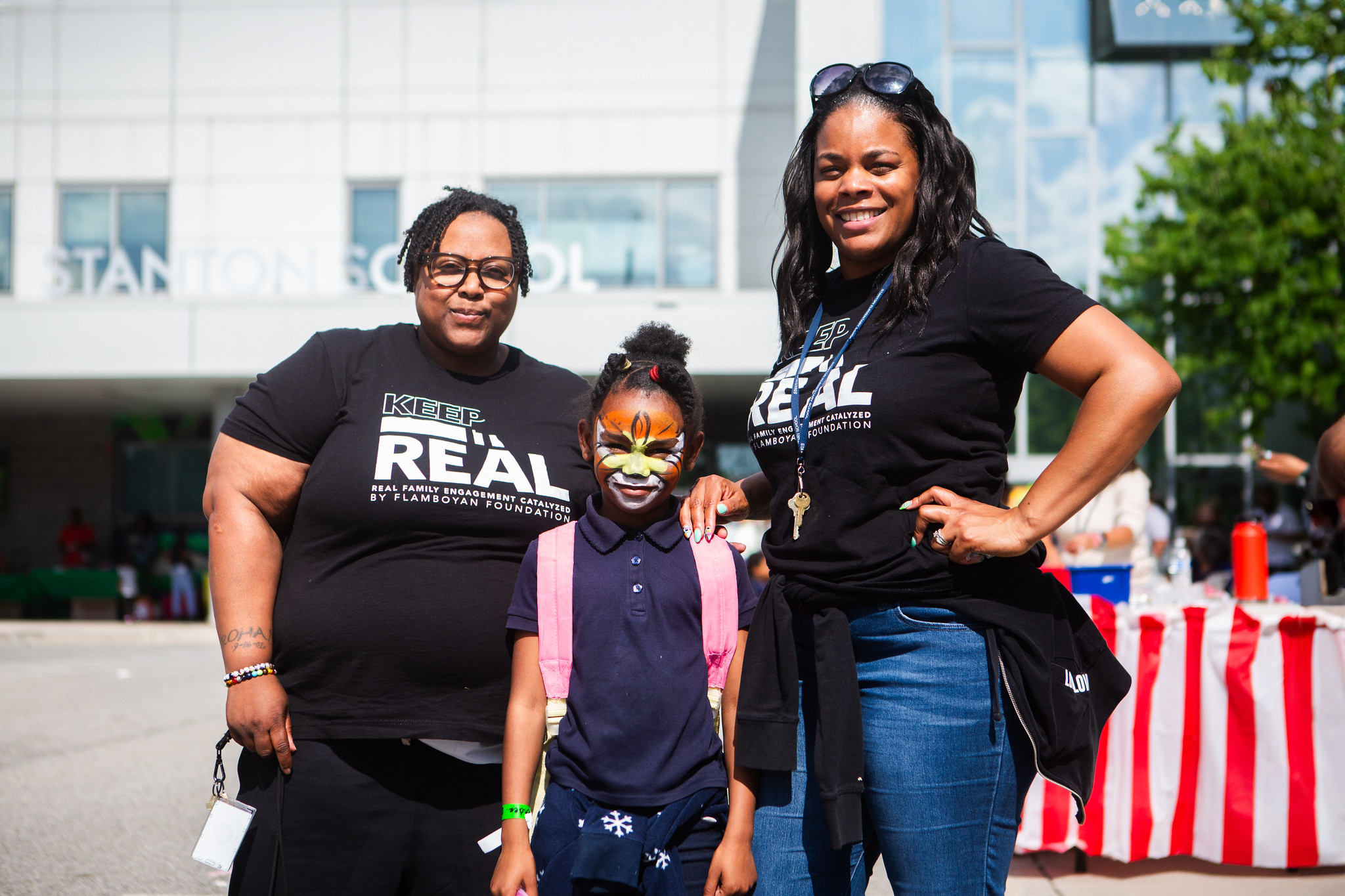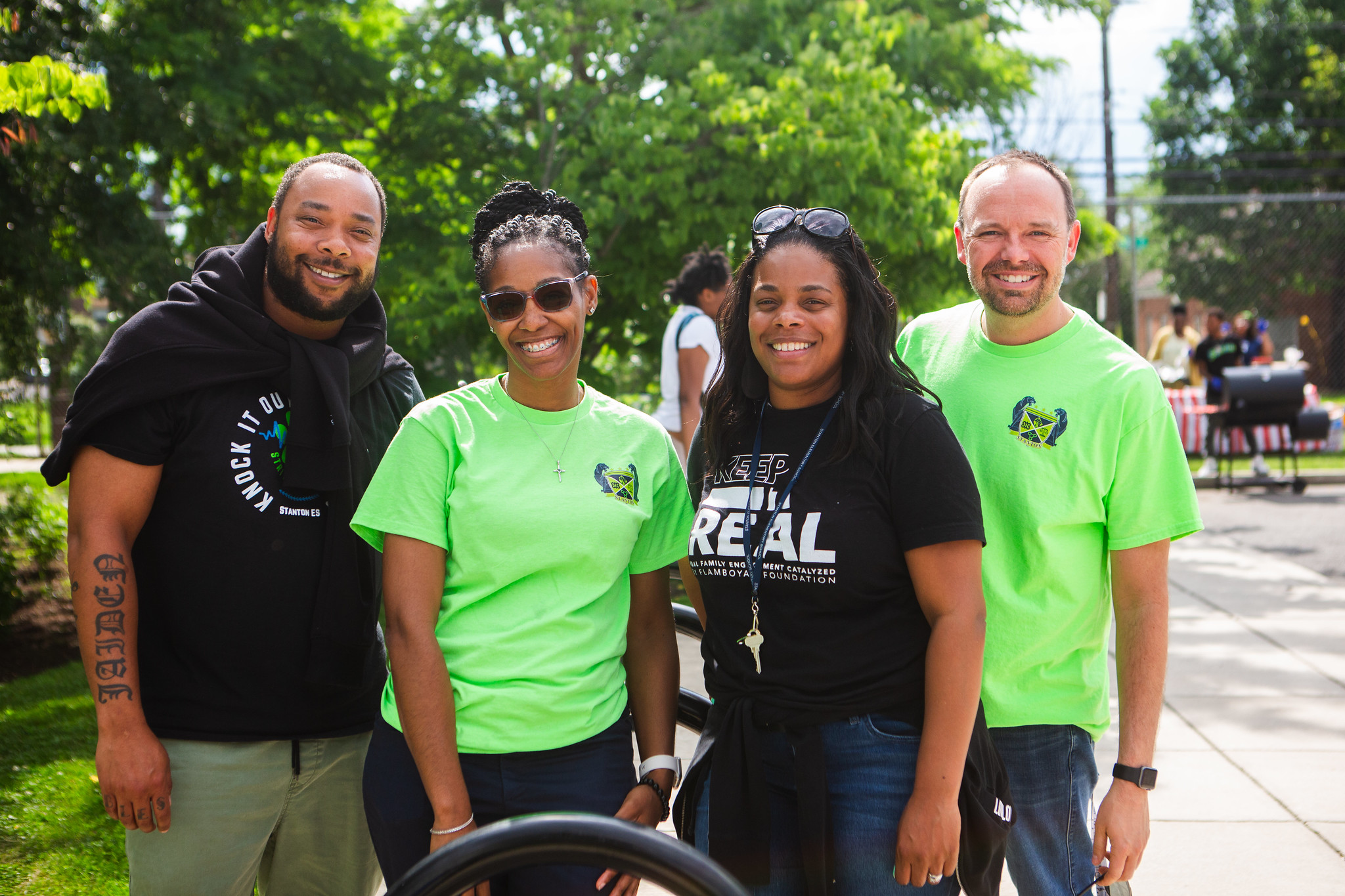This June, we are celebrating the accomplishments of Flamboyan partner schools that have graduated from the Family Engagement Partnership (FEP). The FEP is an opportunity for schools to develop their culture and practices in REAL Family Engagement, with the support and expertise of Flamboyan’s expert Coaches. FEP schools work to grow and sustain their own family engagement practices through four phases, from building relationships with families to long-term program sustainability.

Stanton Elementary School is a long-time Flamboyan partner, with a long-time commitment to family engagement. The school began working with Flamboyan in 2011, and have persisted in the partnership through the COVID-19 pandemic and leadership and staff changes. In fact, the FEP program started with Stanton, together with three other schools, so without their unwavering dedication and willingness to try something new, the FEP wouldn’t be where it is today.
“Families expect strong partnership from the school,” said Mamie Elizabeth Hall, the Coach for Stanton in their last year of the FEP. “And staff are extremely committed to the work of partnering with families.”
Graduation from the FEP, especially for a partner like Stanton, can feel bittersweet for the teachers and staff at the school, and for Flamboyan. On the one hand, graduation from the FEP means the school has reached a strong level of sustainability and solidity of its systems, culture, and commitment to REAL Family Engagement. On the other hand, the team must stay committed to moving forward on their path without the regular types of support offered by a Coach.

Stanton is in a strong position as they complete their final year in the FEP. They have a Family Engagement Leadership Team (FELT) with representation from all grade levels at the school. FELT members and principal Allen Richardson believe in the importance of family engagement and partnership as a key to academic success for students.
“They are working to further develop the leadership of their team to continue serving more families and children,” said Mamie. “They are identifying the aspects of their approach that are strongest to keep them in place.”
For example, Stanton is seeking ways to codify and share its perspective and unique approach to family engagement, beyond any one specific leader, teacher, or group. They’ve developed the idea of adding family engagement to the staff handbook, so that systems and practices are sustained for many years.
This rock-solid commitment shows in the way staff at Stanton talk about family engagement: “At Stanton, family engagement is not an important thing. It’s everything,” says Angel Miles, a teacher at Stanton who is a thirteen-year veteran of the school and a member of the Family Engagement Leadership Team (FELT). “Knowing the hopes and dreams of a family for their child has helped me become a better teacher.”
Stanton’s commitment to REAL Family Engagement has shown results. Ms. Miles says that family participation in school events and activities has grown over time, as has teacher’s understanding of the value of home visits – especially since the Covid-19 pandemic and related school closures. She’s also seen Stanton’s commitment to engaging the families of students with disabilities increase.
“As a FELT leader, I feel it is paramount to be intentional when planning activities that effectively support our entire student population.”